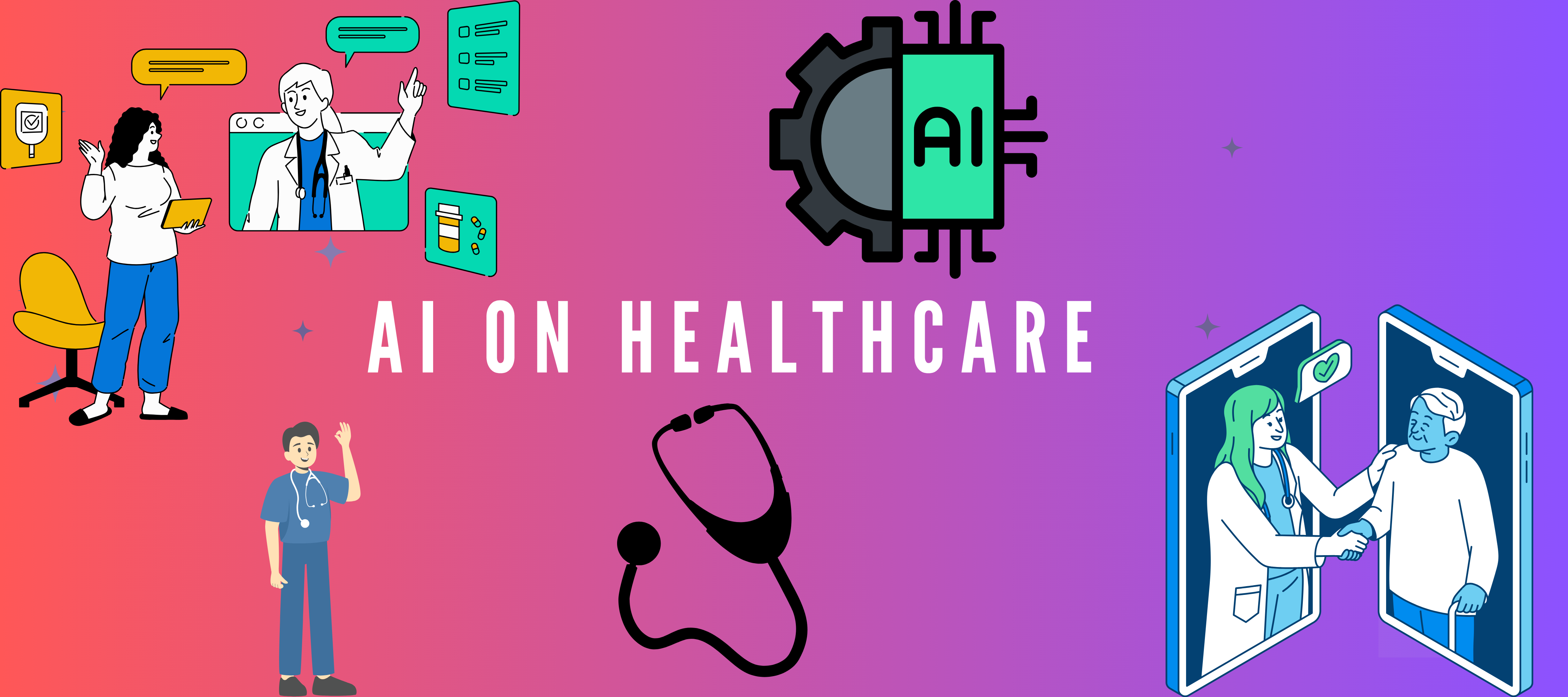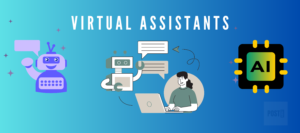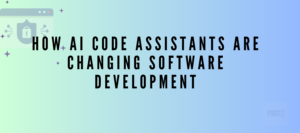Artificial Intelligence (AI) is rapidly transforming healthcare, with its impact ranging from diagnosis to treatment. In this article, we explore the profound ways AI is revolutionizing the medical field, including its role in enhancing diagnostic accuracy, personalizing treatment, and improving patient care. As AI continues to evolve, its influence on healthcare will only grow, making it a critical topic for medical professionals and patients alike.
The Impact of AI on Healthcare Diagnosis
1. Enhancing Diagnostic Accuracy:
AI is enhancing diagnostic accuracy by analyzing vast amounts of medical data, which is crucial for early detection and reducing diagnostic errors. Tools like Google’s DeepMind are leading the way in this area. (For more on this, see our article on Top Generative AI Tools for Creatives.)
2. Early Detection of Diseases:
AI also plays a crucial role in the early detection of diseases, which is vital for improving patient outcomes. In oncology, AI algorithms are being developed to detect cancer at its earliest stages by analyzing medical images, genomic data, and even biomarkers in blood samples. Companies like PathAI are working on AI-driven pathology tools that can assist pathologists in identifying cancerous cells with greater precision .
3. Reducing Diagnostic Errors:
Diagnostic errors are a significant concern in healthcare, often leading to delayed treatment or inappropriate interventions. AI can help mitigate this issue by providing a second opinion to clinicians. For example, IBM’s Watson for Oncology uses AI to analyze a patient’s medical information and recommend evidence-based treatment options, thereby reducing the likelihood of errors .
Personalized Treatment: AI’s Role in Healthcare
1. Personalized Treatment Plans:
One of the most promising applications of AI in healthcare is personalized medicine. By analyzing a patient’s genetic makeup, lifestyle, and medical history, AI can help develop tailored treatment plans that are more effective and have fewer side effects. For example, AI-driven platforms like Tempus use machine learning algorithms to analyze clinical and molecular data, providing oncologists with personalized treatment recommendations for cancer patients .
2. Drug Discovery and Development:
The process of discovering and developing new drugs is time-consuming and expensive. AI is streamlining this process by predicting how different compounds will interact with biological targets, thus accelerating the identification of promising drug candidates. Companies like Insilico Medicine are using AI to identify new drug candidates, potentially reducing the time and cost associated with bringing new drugs to market .
3. Robotic Surgery and AI-Assisted Procedures:
AI is also making its way into the operating room, where it assists surgeons in performing complex procedures with greater precision. Robotic surgery systems, such as the da Vinci Surgical System, utilize AI to enhance the surgeon’s capabilities, resulting in more accurate and less invasive procedures. AI algorithms can also analyze real-time data during surgery, helping surgeons make informed decisions and improving patient outcomes【11†source】.
AI in Patient Care and Management
1. Virtual Health Assistants:
AI-powered virtual health assistants are becoming increasingly popular, providing patients with personalized health advice, reminders for medication, and even mental health support. These assistants use natural language processing (NLP) to interact with patients, answering questions and guiding them through their healthcare journey. For example, apps like Ada Health use AI to assess symptoms and provide recommendations on when to seek medical care【12†source】.
2. Predictive Analytics for Patient Management:
Predictive analytics, powered by AI, is transforming how healthcare providers manage patient care. By analyzing data from electronic health records (EHRs), wearable devices, and other sources, AI can predict which patients are at risk of developing chronic conditions or experiencing adverse events. This allows healthcare providers to intervene early and implement preventive measures, ultimately improving patient outcomes and reducing healthcare costs【13†source】.
3. Remote Monitoring and Telemedicine:
The COVID-19 pandemic has accelerated the adoption of telemedicine and remote patient monitoring, and AI is playing a key role in these areas. AI algorithms can analyze data from wearable devices to monitor patients’ vital signs in real time, alerting healthcare providers to any concerning changes. This is particularly valuable for managing chronic conditions, where continuous monitoring can prevent complications and reduce hospitalizations【14†source】.
Ethical Considerations in the Impact of AI on Healthcare
1. Data Privacy and Security:
The use of AI in healthcare raises important ethical considerations, particularly regarding data privacy and security. AI algorithms require access to large amounts of sensitive patient data to function effectively, which raises concerns about how this data is stored, shared, and protected. Ensuring that patient data is anonymized and securely stored is critical to maintaining trust in AI-driven healthcare solutions .
2. Bias in AI Algorithms:
AI algorithms are only as good as the data they are trained on. If the training data is biased, the AI’s predictions and recommendations may also be biased, leading to disparities in healthcare outcomes. For example, if an AI model is trained primarily on data from a specific demographic group, it may not perform as well for individuals from other groups. Addressing bias in AI algorithms is essential to ensuring that all patients receive equitable care .
3. The Role of Human Clinicians:
As AI becomes more integrated into healthcare, there are concerns about the role of human clinicians. While AI can assist with diagnosis and treatment, it cannot replace the human touch that is so important in patient care. Clinicians must remain involved in the decision-making process, using AI as a tool to enhance their expertise rather than replace it .
The Future of AI in Healthcare
The future of AI in healthcare is promising, with ongoing research and development focused on improving the accuracy, efficiency, and accessibility of AI-driven solutions. As AI continues to evolve, we can expect to see even more advanced applications, such as AI-powered diagnostic tools that can detect diseases earlier than ever before, personalized treatment plans based on real-time data, and AI-driven drug discovery that brings new therapies to patients faster.
However, realizing the full potential of AI in healthcare will require addressing the ethical and practical challenges that come with its adoption. Ensuring that AI algorithms are transparent, unbiased, and secure is essential to building trust among patients and healthcare providers. Additionally, ongoing collaboration between AI developers, clinicians, and policymakers will be crucial in shaping a future where AI enhances, rather than replaces, human healthcare.
Conclusion
The impact of AI on healthcare is profound, offering new opportunities to improve diagnosis, treatment, and patient care. From enhancing diagnostic accuracy to personalizing treatment plans, AI is transforming the healthcare industry in ways that were unimaginable just a few years ago. However, as we embrace the potential of AI, we must also address the ethical challenges it presents to ensure that all patients benefit from these technological advancements.
By staying informed about the latest developments in AI and healthcare, healthcare providers can harness the power of AI to deliver better care, improve patient outcomes, and ultimately, save lives. As we look to the future, the integration of AI into healthcare will continue to grow, offering new possibilities for improving health and well-being around the world.
For further reading on the impact of AI on healthcare, check out these resources:
By understanding and leveraging the potential of AI, healthcare professionals can continue to provide high-quality care in an increasingly complex and technologically advanced world.
Read more about AI related topics:




